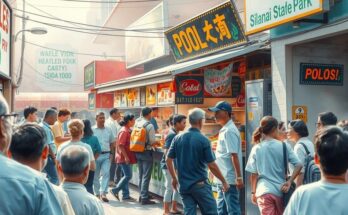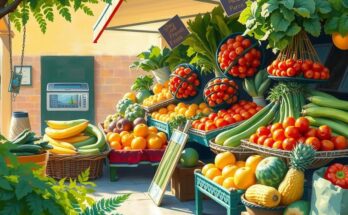Farmers in Zimbabwe, including Mari Choumumba, are increasingly adopting maggot farming as a sustainable and cost-effective alternative to traditional livestock feed. This practice not only mitigates the effects of drought but also provides a profitable livelihood for farmers by transforming organic waste into valuable protein sources for chickens. Supported by initiatives from organizations like USAID, the approach is becoming a viable solution for communities facing agricultural challenges.
In southeastern Zimbabwe’s Nyangambe region, many farmers, including Mari Choumumba, have turned to maggot farming as a response to the devastation caused by drought that wiped out corn crops. Initially met with skepticism due to fears surrounding disease transmission and societal stigma, maggot farming offers economic relief by transforming organic waste into a protein-rich feed for livestock. This innovative approach not only reduces feed costs by approximately 40% but also provides a viable livelihood for the farmers as traditional sources dwindle under the pressures of climate change. With the support of organizations like USAID, the adoption of maggot farming is gaining momentum, with nearly 50% of farmers now embracing the practice.
The severe impacts of drought in Zimbabwe have left many farmers struggling to cultivate staple crops like corn, significantly affecting food security and livelihoods. The introduction of maggot farming, particularly utilizing the larvae of the black soldier fly, represents a transformative agricultural strategy aimed at alleviating these challenges. These larvae thrive on organic waste materials, providing high protein content while presenting a sustainable solution to waste management and agricultural sustainability. Experts note that the black soldier fly does not transmit diseases, thereby mitigating risks associated with traditional fly populations.
The transition to maggot farming in Zimbabwe exemplifies resilience and innovation among farmers facing climatic adversities. By effectively utilizing waste and reducing dependence on costly feed, farmers like Mari Choumumba are creating sustainable food systems and supporting local economies, all while contributing to environmental goals. This initiative not only reshapes perceptions but also emphasizes the potential of unconventional agricultural practices in food security efforts.
Original Source: apnews.com




